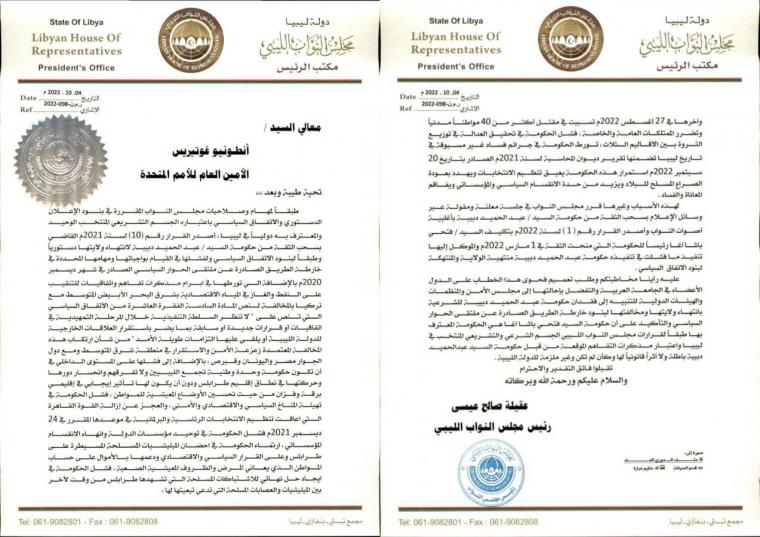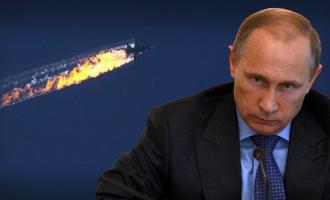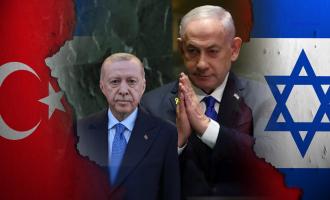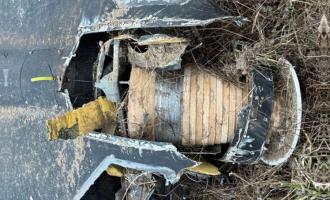"This latest illegal agreement is yet another symptom of a more fundamental malaise associated with the usurpation of Libya's sovereignty and right to self determination: the continuing imposition of unelected yet internationally recognized regimes in Libya that are not only undemocratic, oppressive and corrupt but are also proxies of foreign governments, in this case of a predatorial Turkey and its allies", says Aya Burweila*, BBC expert woman on terrorism and radicalization and founder of the NGO Code on the Road,regarding the illegal agreement for the exploitation of hydrocarbons in Libya.
"Since 2014, the international community has sabotaged and circumvented the democratically elected parliament of resource-rich Libya and super imposed foreign appointed kakistocracies that have not only misappropriated and abused billions of Libyan public funds but have also directly midwifed Turkish foreign occupation. These dismal facts on the ground lead many Libyans to believe that NATO Intervention of 2011 was never about freeing Libya from a tyrant or promoting democracy but to replace one tyrant with their own tyrants", adds Ms. Bourweila, who is also Ambassador and Special Envoy of the European Public Law Organization in Libya and North Africa.
In an exclusive interview to PENTAPOSTAGMA, Ms. Burweila had pointed out that, "Turkey's role [in Libya] is deeply destructive militarily, economically and politically". Among other things, she also spoke about the relations with Greece, stressing that, "our country shares the same problems as the Libyans". She urged the Greek side, "not to repeat its previous strategic mistakes and to ensure a strong presence in the East".
It is noted that in a letter to UNSG Antonio Gutteres, Libyan Parliament Speaker Aguila Saleh confirms that Abdulhamid Dabaiba’s government is illegitimate and all agreements or MoU’s signed by his government are void.

On Tuesday, the Foreign Affairs Committee of the Libyan Parliament denounced the Government of National Unity’s (GNU) signing of an energy agreement with Turkey, to carry out gas and oil exploration operations.
Furthermore, Qatar and Egypt have agreed to unify the two countries' positions on Libya and support the push for a new presidential council while maintaining the Government of National Unity led by Abdul Hamid Dbeibah after repeated failures by Fathi Bashagha, Egyptian newspaper Mada Masr reported citing government sources.
Mada Masr added that Egypt had largely supported Bashaga's attempt to oust Dbeibah by creating chaos in the west of the country because of its discomfort with being lined up between the United Arab Emirates and Turkey over their support for the latter.
It also said that Egyptian security officials had previously revealed that Ankara and Abu Dhabi supported opposing sides in the 2019 war in Tripoli, but that they are increasingly finding common ground in Libya and in their bilateral relations.
Greek Commander appointed to monitor Arms Embargo on Libya
Athens has engaged in a diplomatic marathon in order to inform its neighbors and allies about the new Turkish claims. The Minister of Foreign Affairs, Nikos Dendias had a series of contacts with his counterparts and representatives of third countries in Athens, while his visit to Cairo is already planned for further consultations.
"Greece maintains, as defined by the United Nations Convention on the Law of the Sea, an ipso facto et ab initio right to a continental shelf, which, in the absence of a bilateral agreement, is defined by the median line. Finally, it is pointed out that the Turkish-Libyan "memorandum" of 2019 is illegal, invalid and non-existent. Therefore, no one has the right to invoke it", states the Greek Ministry of Foreign Affairs in a statement.
In the same atmosphere and with a timely symbolism, European Union's Operation IRINI held on last Saturday a ceremony for the change of Force Commander on board of the new flagship HS Aegean, chaired by the Operation Commander Rear Admiral Stefano Turchetto.
Commodore Stylianos Dimopoulos of the Hellenic Navy has taken over the Command Authority of the European Naval Force operating in the Central Mediterranean from the Italian Rear Admiral Fabrizio Rutteri, IRINI said on its website.
The European Union Naval Force, Operation IRINI said that it had detected 38 suspicious flights during September. It also continued to monitor 25 airports and runways, and 16 ports and oil terminals.
According to the Italian news agency, Nova the operation communicated with 156 commercial ships via radio, and conducted 18 visits to ships with the approval of their captains. IRINI explained that two out of 24 ships were diverted to the port of an EU member state, where their cargo was later confiscated.
54 inspections of suspicious ships were carried out, after diverting them to EU ports. It noted that Turkey refused to agree to inspections on eight separate occasions to inspect their suspicious ships.
*Aya Burweila is the Founder and Director of Code on the Road and a BBC Expert Woman in Terrorism and Radicalization. She is also the Ambassador and Special Envoy of the European Public Law Organization to Libya and North Africa.
















